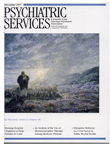Women's Growth in Diversity: More Writings From the Stone Center
This book, subtitled More Writings From the Stone Center, sometimes offers too much and sometimes not enough. The book is a collection of papers from the growing feminist literature on women's development, specifically the relational model of theorists of the Stone Center at Wellesley College. This second book from the center tries to elaborate certain topics in relational theory, such as anger, sexuality, shame, and clinical applications; it also explores, according to the editor, some of the "richness and complexity" resulting from women's diversity in race, culture, socioeconomic status, and sexual orientation.
The main merit of the book consists in consolidation of the path developed by feminist revolutionaries like Carol Gilligan. It is a symbol of the transformation of feminists' heated and rebellious speech into calmer, somewhat repetitious prose. It will certainly help the goal of broadening the understanding of women's development, but it is less successful in deepening that understanding.
Most of the papers review the problems of female minority groups, and they succeed in familiarizing the reader with the existence of different and less-heard perspectives. Focus on the diversity of perspectives described in this book is an excellent way of making a single racial or cultural or socioeconomic voice less dominant. The majority of the papers relate personal experiences or frame these experiences within Stone Center relational theory (reviewed in the first chapter by Judith Jordan).
The reader may sometimes expect a deeper analysis of the phenomena described, based on the often-repeated concept of "mutuality." In many chapters, beautiful goals like "empowerment," "growth," and "connection" seem to just hang there, waiting for clearer elaboration of how to reach them. Two chapters— "Revisioning Women's Anger" by Jean Baker Miller and Janet Surrey and "Intimacy in Lesbian Relationships" by Julie Mencher—do seem to provide more thorough analysis.
Heterogeneity is an important characteristic of the collection. It is a good exercise for anybody working in the field of mental health to keep in mind how strongly cultural background shapes psychological problems of specific groups like lesbians or African-American or Latin-American women. Moreover, some stereotyped reactions to women in a minority group only reinforce their psychological problems. However, in the book the unifying concept of "mutuality" or "connection" is sometimes presented as a panacea for all problems. (Page 56 has a detailed recipe for "joy.")
Psychotherapists will find descriptions here of how to solve some therapeutic impasses through deblaming the patient and the relational reframing of therapy. However, the question remains of whether blaming the patient and therapeutic role rigidity result from a "bad," gender-biased theoretical paradigm or just from poor professional skills.
For a psychiatrist, it is interesting to find that in one of these papers— "From Depression to Sadness in Women's Psychotherapy," by Irene Stiver and Jean Baker Miller—classic concepts of German psychopathology are transferred to the relational paradigm.
The papers focus strongly on two modes of being—the feminine, or the empathy-love model, and the masculine, or the power-control model—and on their psychological outcomes, which are the relational self and the individual self, respectively. These discussions provide an opportunity to re-explicate some gender-related stereotyped behavior. One of the most beautiful comments in the book— "the greater the impasse, the more gender stereotypical the behavior"—saves the collection from confiscating all the positive solutions for the feminine corner of a relationship.
Dr. Andreescu is affiliated with the Romanian League for Mental Health in Bucharest.



